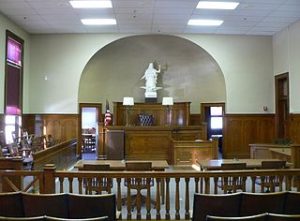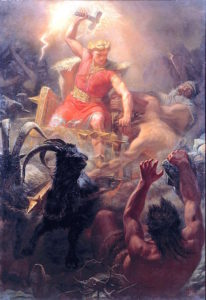“buried with Him in baptism, in which you also were raised with Him through faith in the working of God, who raised Him from the dead” (Colossians 2:12).
While there are several different viewpoints related to the act of baptism, it is perhaps best seen as an external indicator of the inner work that Jesus performs in our life. You see, baptism serves as a public association with Christ and an affirmation of the change that has taken place in the lives of those who have accepted Him as Savior.
One translation of Colossians 2:12 expresses this idea in vivid terms: “…you were placed in the tomb with Christ through baptism. In baptism you were also brought back to life with Christ through faith in the power of God, who brought him back to life” (GW). In this respect, the act of baptism also symbolizes the death and burial of our former lives and our “resurrection” to new life in Christ.
The Apostle Peter also expanded on this idea in the New Testament book of 1 Peter: “…Baptism does not mean we wash our bodies clean. It means we are saved from the punishment of sin and go to God in prayer with a heart that says we are right. This can be done because Christ was raised from the dead” (1 Peter 2:21 NLV)
Baptism represents a natural progression for those who are truly serious about following Jesus. The first step in that progression normally begins with our acceptance of Christ as Savior. It is then followed by the act of baptism which serves to identify us with Jesus and His death, burial, and resurrection. The end of that progression corresponds with the lifelong path of spiritual growth given to us in Acts 2:42: prayer, Bible study, communion, and regular church attendance.
Before we leave the subject of baptism, we should also take a moment to address the following question: is baptism necessary for salvation? To answer that question, we should recognize that baptism signifies union with Christ; it is not a mechanism that triggers salvation. For instance, if we were to say that baptism is a requirement for salvation, then it would mean that Jesus’ substitutionary work on the cross was left unfinished. In other words, it would mean that Jesus’ death on the cross was insufficient to provide for our salvation and that something further (namely baptism) is necessary.
If that is the case, then Jesus was incorrect when He said from the cross, “It is finished” (John 19:30). Therefore, it is better to view baptism as an external confirmation of the inner reality of Jesus’ work in our lives.


 Much like a modern-day superhighway, there are three “lanes” of thought featured in the passage quoted above. The first lane involves an affirmation of Jesus’ deity. The second lane speaks of our completion in Christ while our third and final lane concerns Jesus’ supremacy over “…every ruler and authority” (NLT).
Much like a modern-day superhighway, there are three “lanes” of thought featured in the passage quoted above. The first lane involves an affirmation of Jesus’ deity. The second lane speaks of our completion in Christ while our third and final lane concerns Jesus’ supremacy over “…every ruler and authority” (NLT). While the word “philosophy” may summon up any number of mental images, this word simply refers to a love of wisdom or “a system of principles for guidance in practical affairs.” (1)
While the word “philosophy” may summon up any number of mental images, this word simply refers to a love of wisdom or “a system of principles for guidance in practical affairs.” (1) This insight provides us with an opportunity to examine the differences between the Biblical definition of meditation and the type of meditation that is associated with various “new age” or eastern religions. For instance, the Biblical concept of meditation involves reflecting upon the subject of God and His Word. This kind of meditation involves learning about God through the Biblical Scriptures and thinking about how that knowledge should impact our lives.
This insight provides us with an opportunity to examine the differences between the Biblical definition of meditation and the type of meditation that is associated with various “new age” or eastern religions. For instance, the Biblical concept of meditation involves reflecting upon the subject of God and His Word. This kind of meditation involves learning about God through the Biblical Scriptures and thinking about how that knowledge should impact our lives.



 For generations, readers and viewers have been enamored with the exploits of fictional detectives like Sherlock Holmes, Hecule Poirot, and Nero Wolfe. Their eccentricities, eye for detail, and ability to unravel complex mysteries have brought these characters more fame in real life than they ever achieved in their own fictional worlds.
For generations, readers and viewers have been enamored with the exploits of fictional detectives like Sherlock Holmes, Hecule Poirot, and Nero Wolfe. Their eccentricities, eye for detail, and ability to unravel complex mysteries have brought these characters more fame in real life than they ever achieved in their own fictional worlds. In a contemporary courtroom, an honorable judge is responsible to uphold the law and sentence those who are guilty of breaking it. If a good judge allowed lawbreakers to go unpunished, then he or she would no longer be a good judge. Instead, the judge would also be guilty of criminal behavior and subject to punishment as well. This is why God cannot simply overlook a violation of the law. In keeping with His just and righteous character, God is a morally perfect arbiter. As such, He must punish those who break the law.
In a contemporary courtroom, an honorable judge is responsible to uphold the law and sentence those who are guilty of breaking it. If a good judge allowed lawbreakers to go unpunished, then he or she would no longer be a good judge. Instead, the judge would also be guilty of criminal behavior and subject to punishment as well. This is why God cannot simply overlook a violation of the law. In keeping with His just and righteous character, God is a morally perfect arbiter. As such, He must punish those who break the law. Long before he became a superhero in the
Long before he became a superhero in the  When you look into a mirror, what do you see? Well, unless you are in a carnival funhouse or peering into a mirror that is cracked or distorted, you will see an exact image of yourself. A good mirror is one that reflects our exact likeness, even when that image reflects something less than our best. This is why the use of a mirror is often essential when applying makeup, shaving, or checking our personal appearance.
When you look into a mirror, what do you see? Well, unless you are in a carnival funhouse or peering into a mirror that is cracked or distorted, you will see an exact image of yourself. A good mirror is one that reflects our exact likeness, even when that image reflects something less than our best. This is why the use of a mirror is often essential when applying makeup, shaving, or checking our personal appearance.